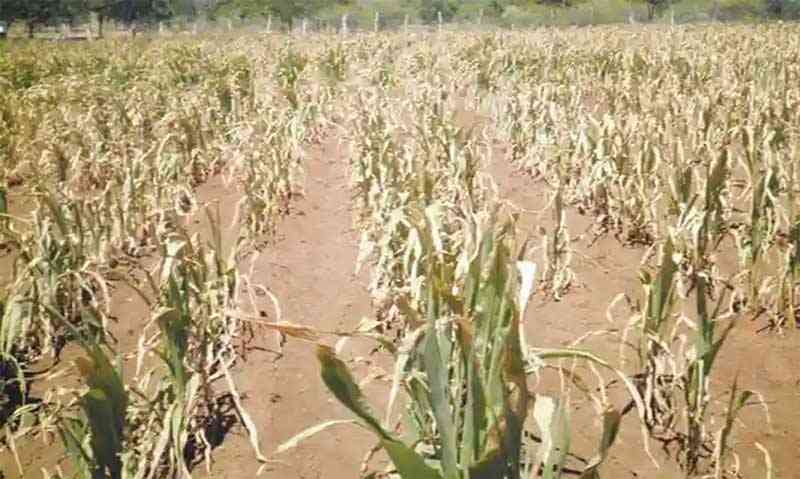
THE Famine Early Warning Systems Network (FewsNet) has warned of an impending hunger crisis due to the El Nino-induced drought which has triggered a spike in food prices amid slumping incomes.
Poor and erratic rainfall has resulted in wilting and stunted crops in many areas, with maize, sorghum and millet crops particularly affected.
Water stress has also impacted the germination and growth of crops, with some farmers reporting total crop failure.
The poor crop conditions are likely to result in below-average yields for the 2024 harvest, further exacerbating food insecurity in the country, FewsNet said in its monthly report.
In the report, FewsNet noted that between June and September 2024, a rapid depletion of food stocks is expected, leaving many households hungry.
“The likely poor harvest is expected to provide very short-lived to no improvements in household food access and availability,” the report read.
“Poor households will try to supplement their poor harvest with market purchases and in-kind payments from petty trade, handicrafts and casual labour.
“However, households with a significantly below-average to no harvest and limited access to income-earning opportunities will likely remain in crisis.”
- Hunger stalks region
- Food crisis looms in Sadc
- Majority facing critical food shortages: Fewsnet
- 3,7m queue for govt food aid
Keep Reading
In early February, the Agriculture ministry reported that 85% of crops were in the vegetative growth stages, with the rest in the reproductive and early maturation stages.
However, the ministry raised concern that maize and other crops at the vegetative stage will not reach maturity.
“Grain prices are already on the rise due to low market supply and high demand, with maize meal prices expected to increase further as the national cereal deficit persists,” FewsNet said.
A 10kg bag of mealie-meal is now being sold for anything above US$8, up from between US$4,50 and US$6 depending on the brand.
“The high exchange rates will also contribute to elevated food prices, making it increasingly difficult for households to afford basic food needs. Income-earning opportunities are limited, further impacting household purchasing power and access to food and non-food items,” the report further indicted.
FewsNet said livestock had also not been spared by the devastating effects of the drought.
“The dry conditions have led to poor pasture regeneration, limited water availability and declining livestock body conditions. Many farmers are struggling to provide adequate feed and water for their livestock, leading to an increased risk of livestock deaths,” the report said.











